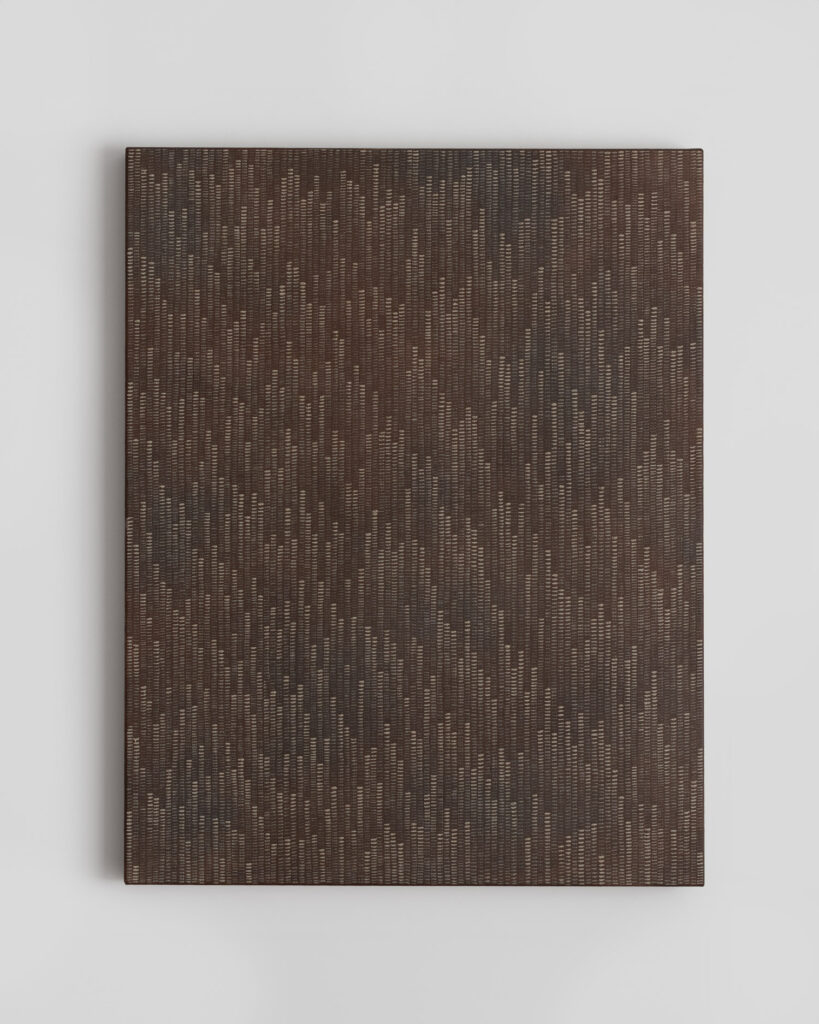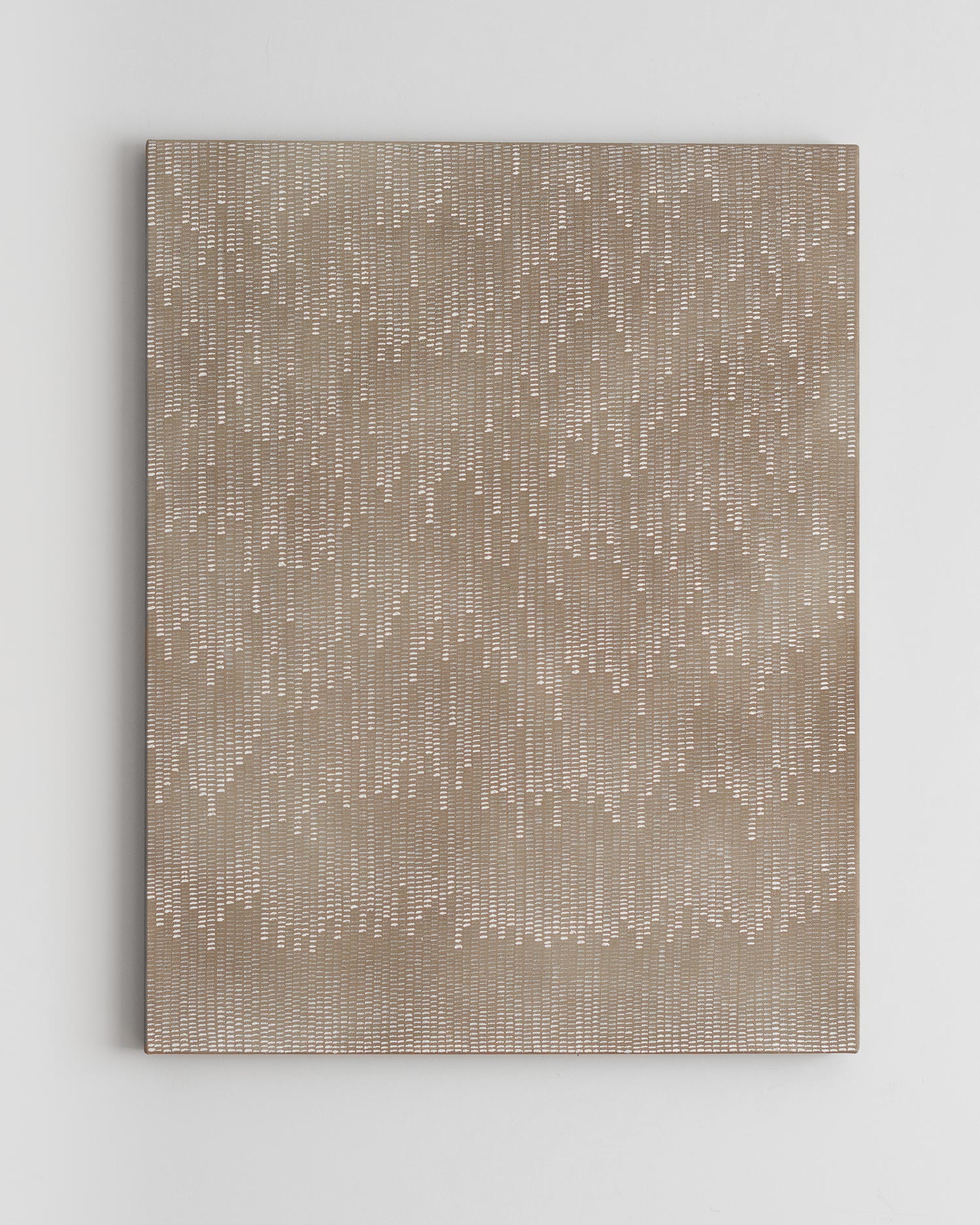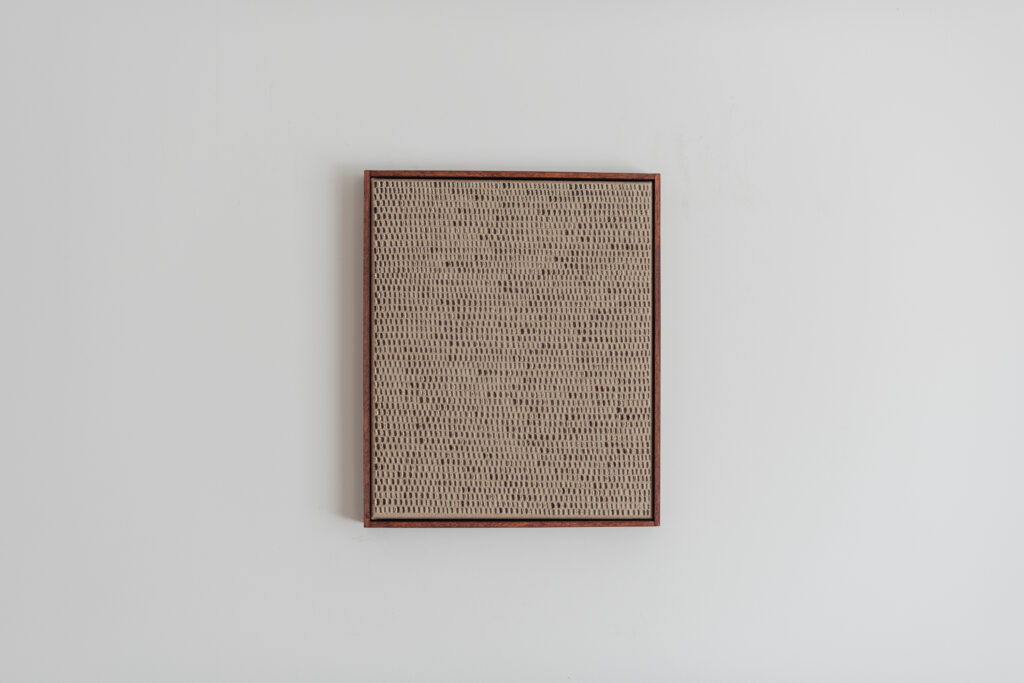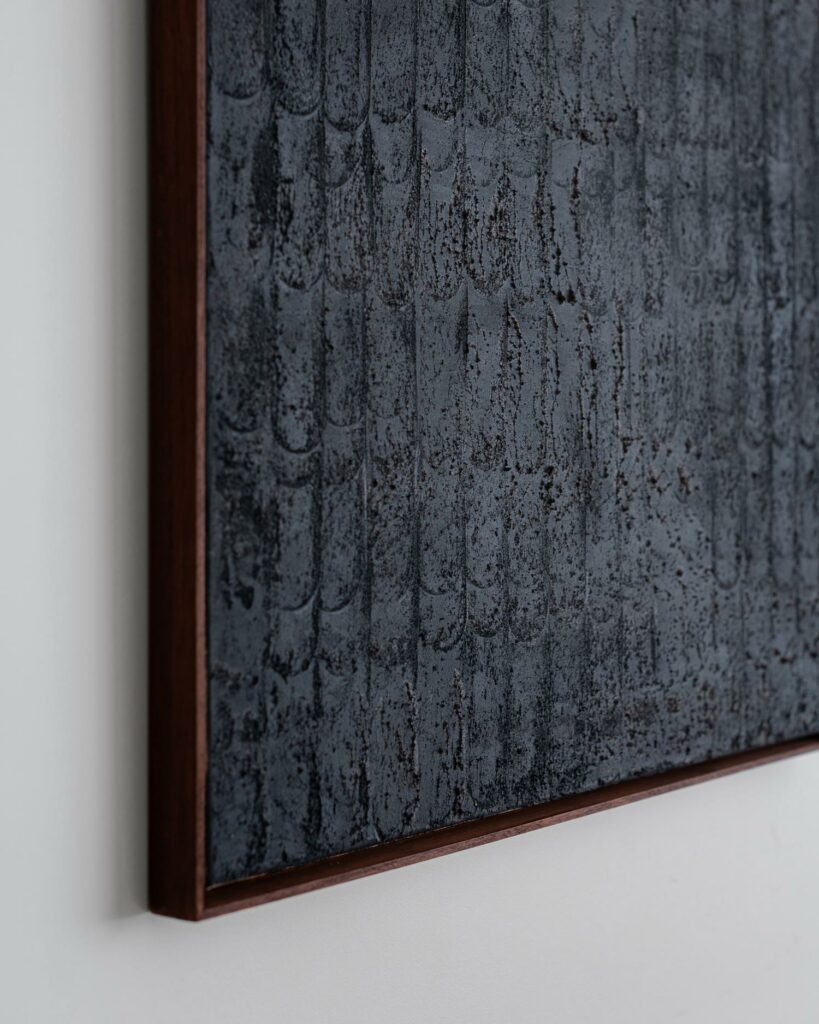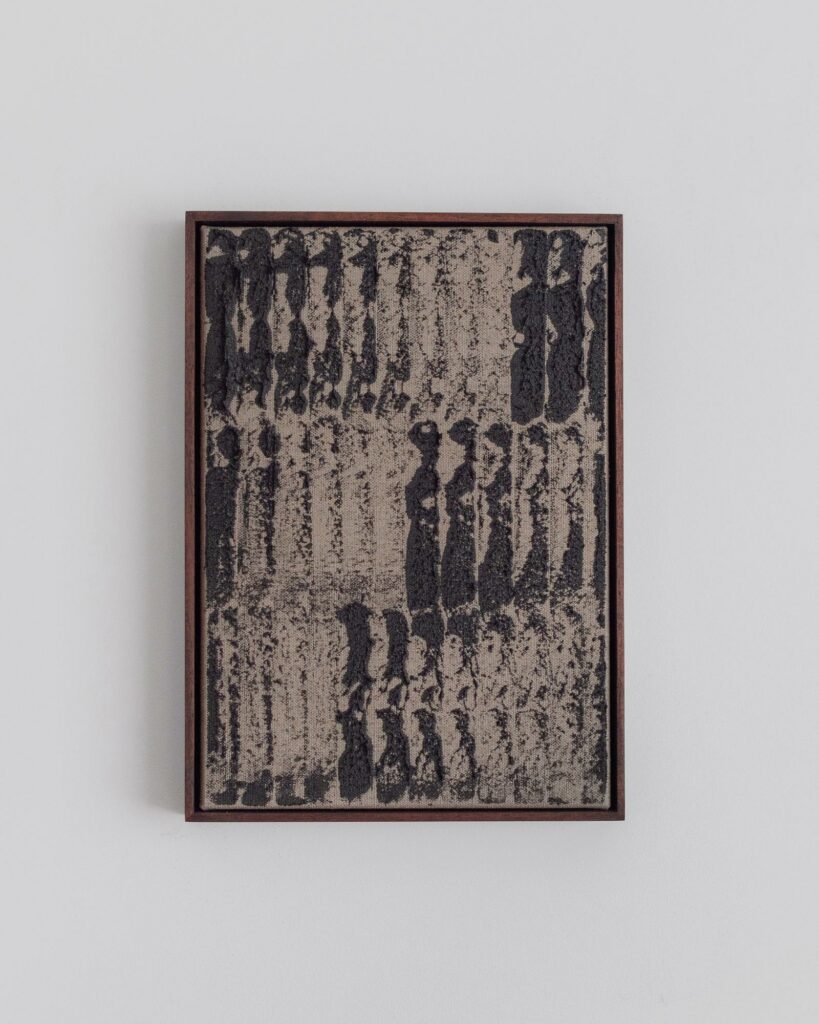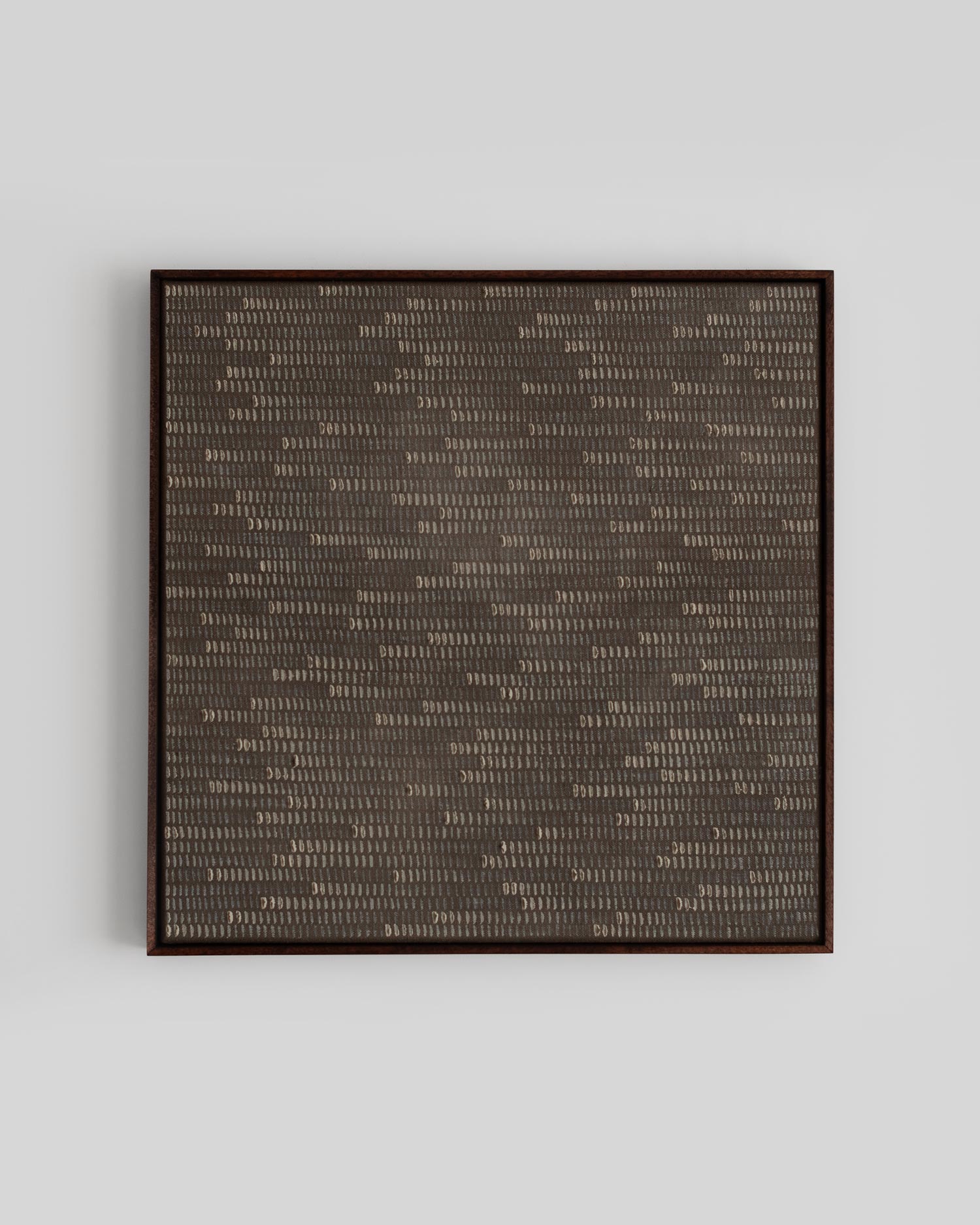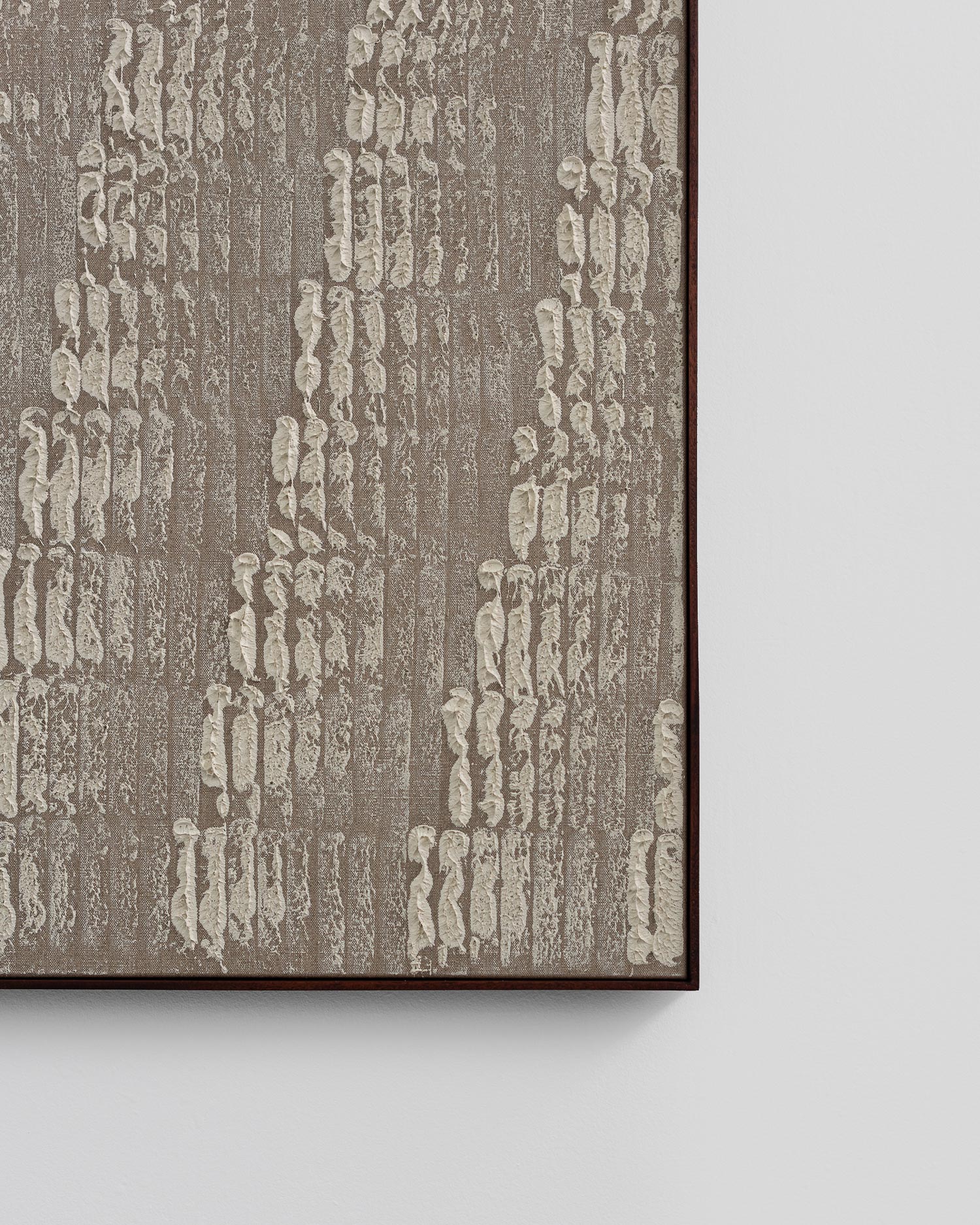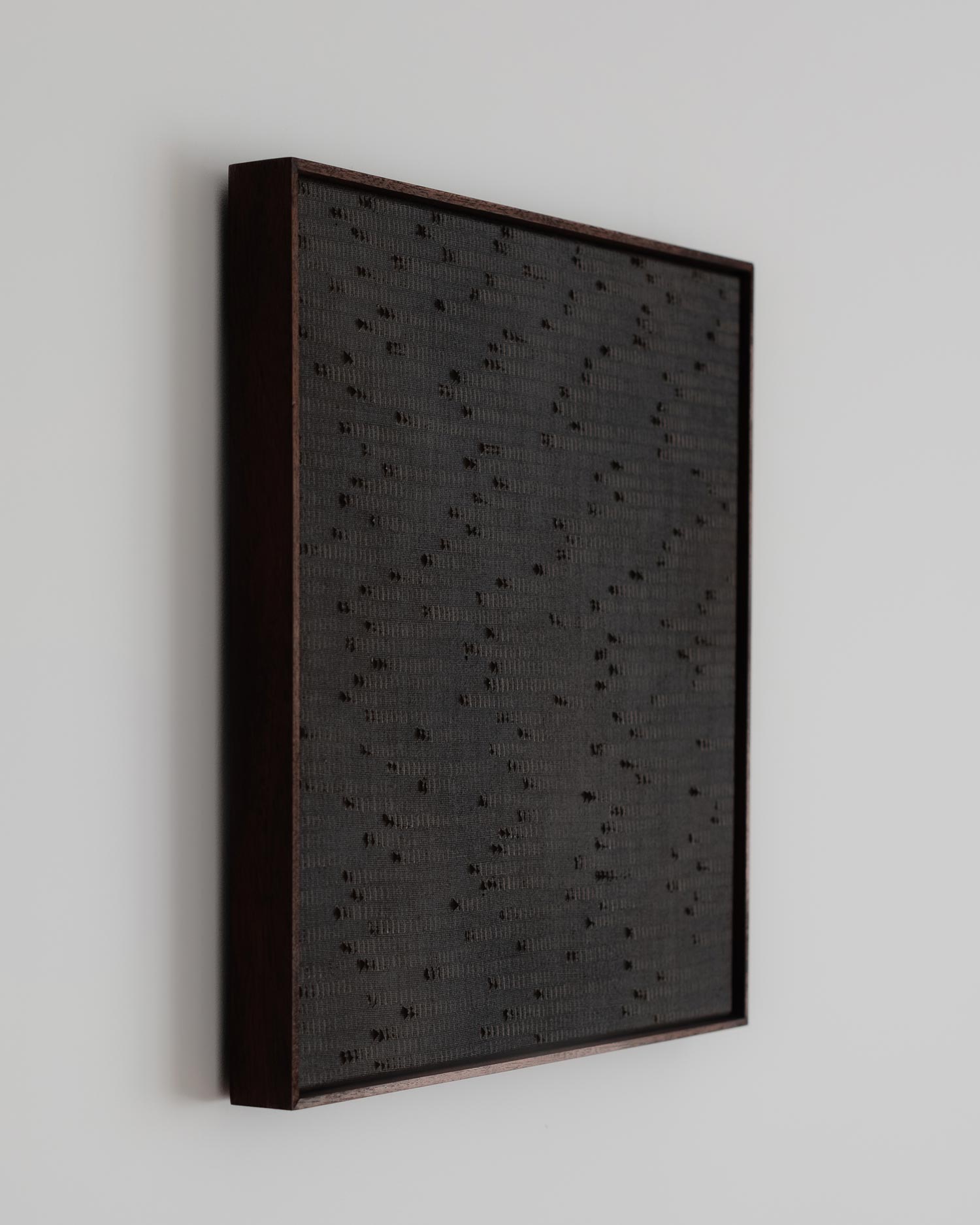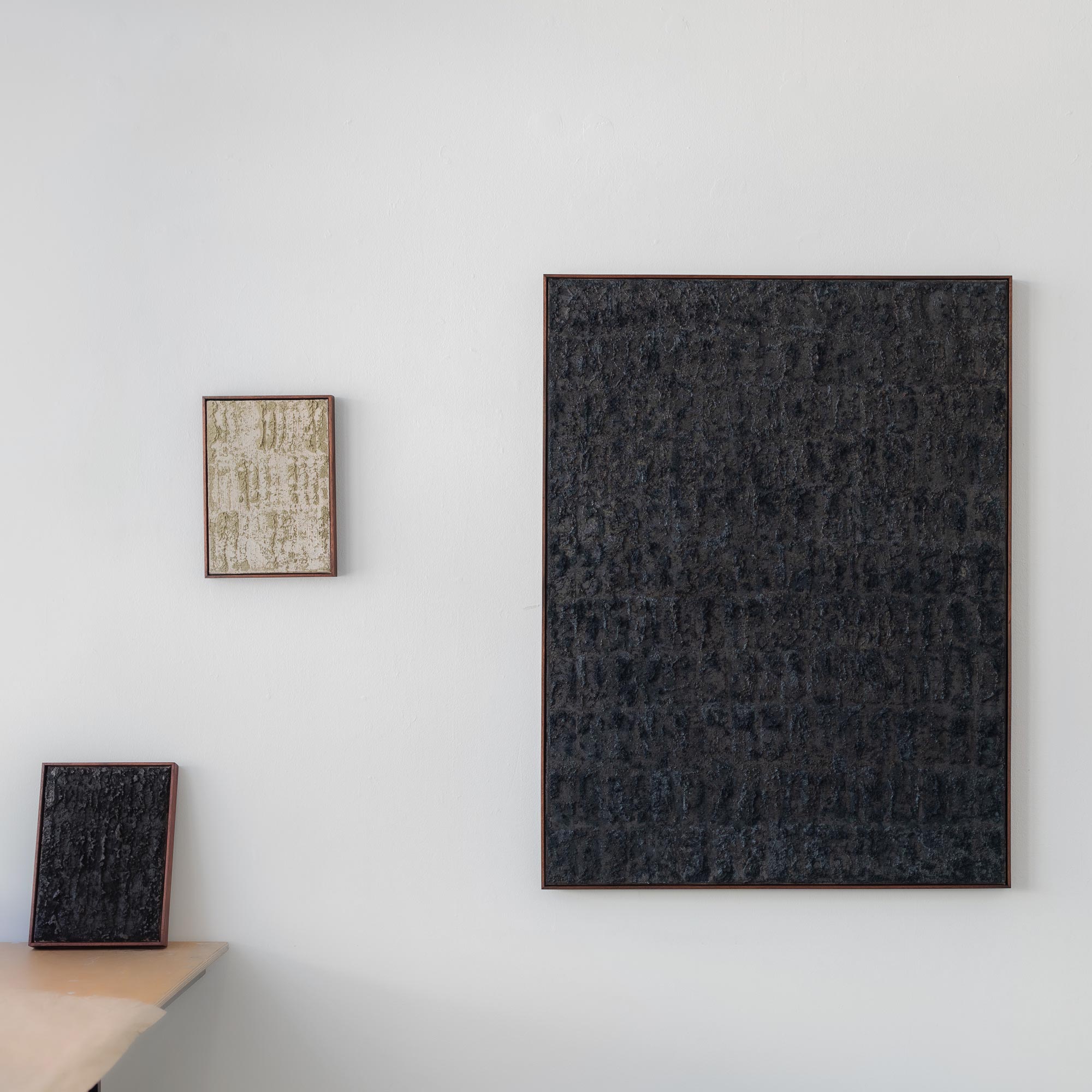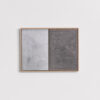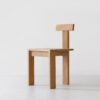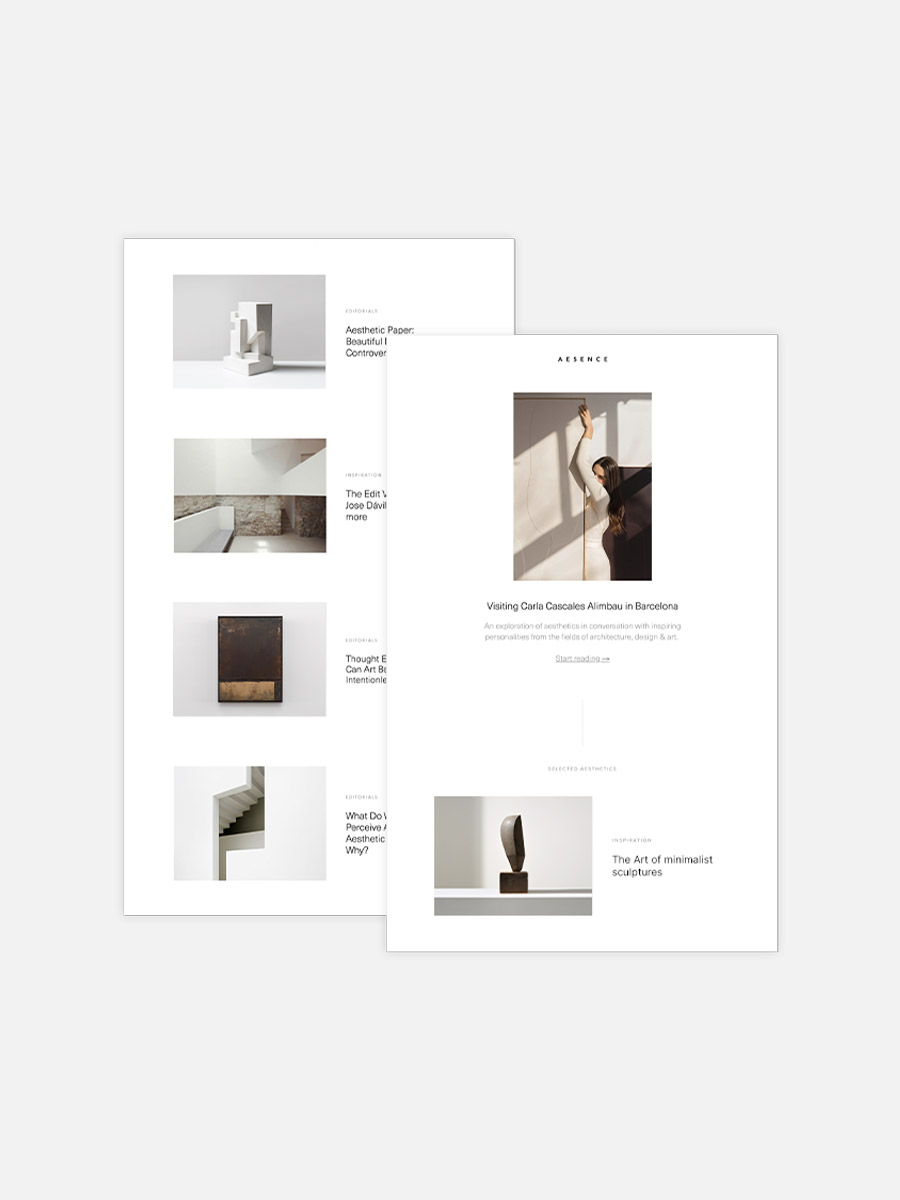In the latest edition of our interview series, we once again dive into the world of minimalist aesthetics. In inspiring conversations with creative minds from the fields of architecture, design, and art, we explore how they are guided by their vision and how they express it in their works. Along the way, they provide us with interesting insights into their creative process and reveal how they perceive and shape the world. This time, I had the pleasure of having an inspiring conversation with artist Cindy Leong.
Cindy Leong is an artist from Aotearoa New Zealand whose work is deeply rooted in Eastern philosophies. Her abstract minimalist paintings are characterized by thousands of repetitive brushstrokes that create an even texture and reveal an impressive meditative depth. In this interview, I talked to Cindy about her path to art, the influence of Buddhism and Taoism on her work, and how she uses painting as a meditative practice. She also shares insights into her definition of minimalism and her current and future projects.
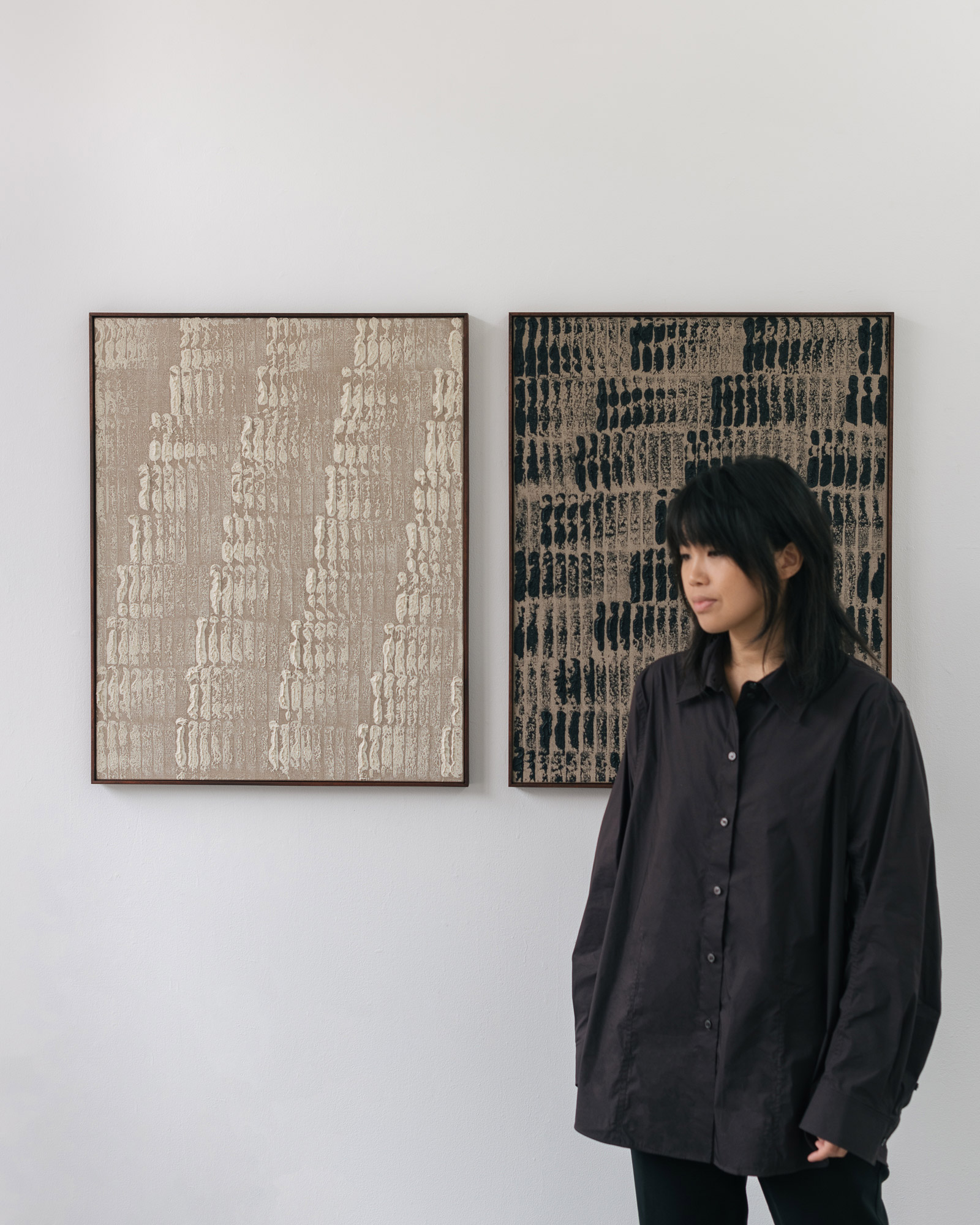
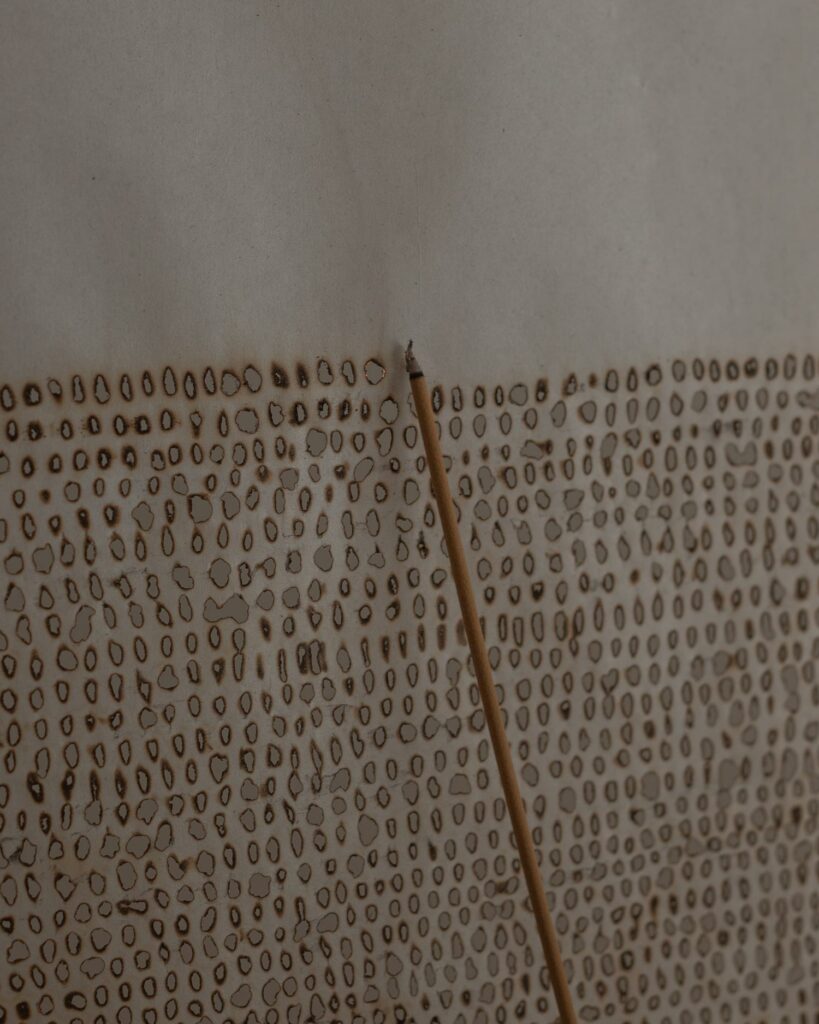
Cindy, thank you for your time! Please tell us how your artistic journey began. Was there a defining moment that led you to become an artist?
Hi Sarah, thank you for having me. As a child, I loved to paint, though it wasn’t until a few years ago that I truly began to pursue it seriously. After an ‘awakening’ while working in advertising, I realized I wanted to create and to work for myself, so I decided to leave the corporate world and freelanced as a photographer. During that time, on a whim, I bought a sketchbook to reconnect with my inner child and quickly rediscovered my love for painting.
In 2019, I moved to Japan on a working holiday and found myself missing painting—it had become part of my way of being. When COVID brought me back home to Auckland, I had time to reflect and decided this was my chance to really go for it. So, just shy of turning 30, I took a big leap of faith and enrolled in a Master of Fine Arts. Now, with exhibitions and painting projects taking up most of my time, I find myself embracing the identity of an artist more confidently.
There were countless key moments which led me to becoming an artist, too many to list, but I think the most pivotal were buying that sketchbook — and probably the pandemic!
Your artistic expression is strongly influenced by Eastern philosophy, especially Buddhism and Taoism. What inspired you to integrate these philosophies into your art?
My interest in Buddhism and Taoism is rooted in a deep curiosity about life, existence, and the nature of reality. Both philosophies explore fundamental questions about the human experience — our connection to the universe, the impermanence of life, and the path to inner peace. Buddhism, with its emphasis on mindfulness and understanding suffering, and Taoism, with its focus on harmony with nature and effortless action (wu wei).
In 2018 and 2021 I undertook a ten-day silent meditation course, Vipassana, which profoundly impacted me. The course involved dedicating ten hours of meditation each day over the span of ten days, which lead to numerous breakthroughs and insights that one might expect from such intense practice. Through this meditation technique, I gained an experiential understanding of key Buddhist teachings, such as acceptance, impermanence, and awareness. Inspired by my experiences during Vipassana and wanting to continue to develop on from this, I thought about how I could integrate these lessons into my art making. For example, a way I practice acceptance during the painting process is by leaving all the imperfect marks I make – instead of trying to change or erase them I learn to embrace them.
Your works are reduced but at the same time complex in their expression. What draws you to this type of aesthetic, and how do you define minimalism in art for yourself?
For me, I would say minimalism feels deeply connected to my nervous system’s need for calm. In recent years, I’ve become more sensitive to overstimulation — whether from crowds, noise, or artificial lights, etc. I crave a space of peace and quiet to retreat to, so naturally I think this sensory preference reflects in the making of my work. Early in my art journey, I experimented with different styles, including colorful, gestural abstract expressionism. After painting these works I’d get this anxious feeling and then find myself painting over them entirely with white…doing that made me feel a sense of relief ha! So I suppose it’s an instinctive, visceral thing — it’s a similar feeling of relief when I’m looking out at the ocean.
How would you describe your art to someone who has never seen it before?
Abstract painting which is meditative and process-oriented, focusing on repetition, texture, and materiality.
I crave a space of peace and quiet to retreat to, so naturally I think this sensory preference reflects in the making of my work.
You describe your painting process as a form of meditation. Can you tell us a little more about what this process looks like and what role repetition plays in it?
I approach the studio as though I’m sitting in a meditation hall; for me, the act of painting is a meditation practice in itself. Repetition plays a crucial role, much like in traditional meditation techniques, where repeated motions help cultivate stillness and focus. With each stroke of the brush — paint to canvas, dab dab dab, back to the palette, and then paint to canvas again — the process becomes rhythmic. Each moment the brush encounters the canvas, a mark is made which cannot be erased, or painted over, I think of it as documenting moments in time. I find this trance like process conducive to entering a flow state which, I believe, is like passing through to another dimension where only the present moment exists.
Equanimity is a central theme for you and your art. What role does the concept of intentionlessness in the creative process play for you?
For me, creating without intention means allowing things to unfold in the moment. When I clear my mind of any preconceived thought about what I “should” do, I create space for intuition, curiosity, and serendipity. Some of my favorite works have emerged without any intention of their final outcome — this can happen when I’m problem-solving, using unusual tools which happen to be in my line of sight, or having the spontaneous thought in the midst of making, “what if I try this instead?”
Each moment the brush encounters the canvas, a mark is made which cannot be erased, or painted over, I think of it as documenting moments in time.
Your works create an atmosphere of quiet contemplation and peace. What do you hope viewers take away from looking at your paintings?
Just that – quiet contemplation and peace. It is up to the viewer how they respond to my works, but in the same way that I feel calmer while creating the works, I hope the viewer feels a sense of calm and introspection while experiencing them. I share similar views to Agnes Martin in that I think art can sometimes be over intellectualized or politicized – the way I view art is predominantly based on how it makes me feel.
And finally: What are you currently working on, and what are your plans for the future? Are there any topics you would like to explore further?
I am currently finishing the last few paintings for a show coming up very soon in November. Next year I’ll be continuing into the final year of my MFA along with a few more solo exhibitions in the pipeline. After that, I’m hoping to take a break and do some extended travel along with some art research. Being based in Aotearoa New Zealand, it’s easy to feel isolated from the rest of the world, so I would love to make some connections overseas—an artist residency abroad would be an absolute dream in the near future.
Thank you so much, Cindy!
More about Cindy Leong
https://www.cindy-leong.com
https://www.instagram.com/cindyleong__/
https://www.leightoncontemporary.com/cindy-leong
Aesence Feature: Cindy Leong – Art As A Visual Meditation
